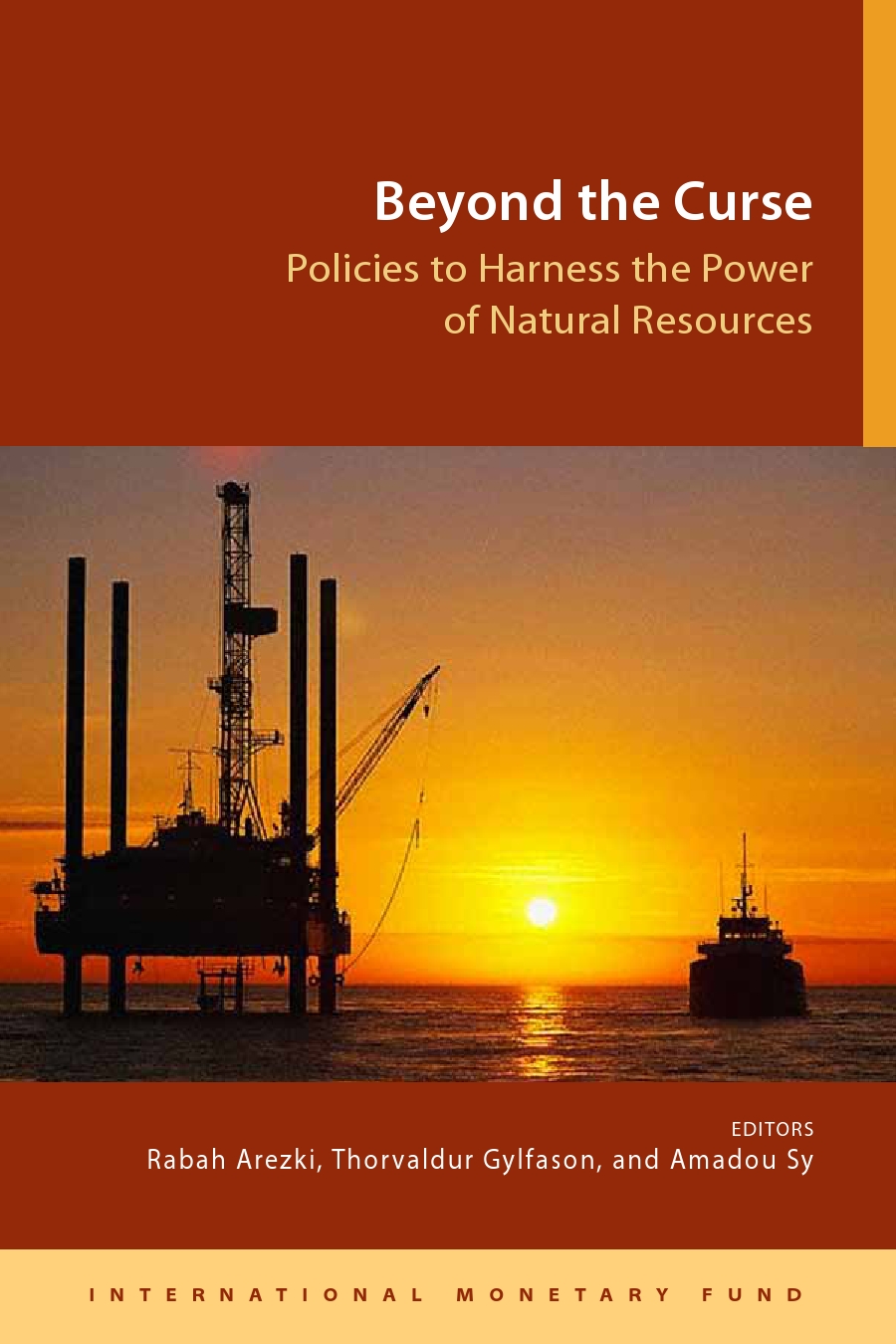Beyond the Curse: Policies to Harness the Power of Natural Resources

Countries with an abundance of natural resources, many of which are in sub-Saharan Africa, often show a record of relatively poor economic performance compared with non-resource-rich countries. The chapters in this volume explore the potential challenges to countries with abundant natural resources and ways to manage these challenges so as to reap the benefits of resource wealth while avoiding the pitfalls. The book is divided into five sections, which explore commodity markets and the macroeconomy, economic diversification and the role of finance, fiscal policy, exchange rates and financial stability, and governance. The ideas in this book were first presented at a seminar in November 2010 that was aimed primarily at policymakers in sub-Saharan Africa and brought together ministers, central bank governors, other senior policymakers, and well-known academics.
Foreword
Christine Lagarde
1. Overview
Leslie Lipschitz
Part I. Commodity Markets and the Macroeconomy
2. Natural Resource Endowment: A Mixed Blessing?
Thorvaldur Gylfason, University of Iceland
3. Primary Commodities: Historical Perspectives and Prospects
Marian Radetzki, Luleå University of Technology
Part II. Economic Diversification and the Role of Finance
4. Economic Diversification in Resource Rich Countries
Alan Gelb, Center for Global Development
5. Finance and Oil: Is there a Natural Resource Curse in Financial Development?
Thorsten Beck, Tilburg University
6. The Economics of Sovereign Wealth Funds: Lessons from Norway
Thomas Ekeli, Ministry of Finance, Norway
Amadou Sy, IMF Institute
Part III. Fiscal Policy
7. What Can We Learn from Primary Commodity Prices Series which is Useful to Policymakers in Resource Rich Countries?
Kaddour Hadri, Queens University Management School
8. Sustainable Fiscal Policy for Mineral-Based Economies
Kirk Hamilton and Eduardo Ley, World Bank
9. Fiscal Policy in Commodity Exporting Countries: Stability and Growth
Rabah Arezki, IMF Institute
Part IV. Exchange Rates and Financial Stability
10. How Can Commodity Exporters Make Fiscal and Monetary Policy Less Procyclical?
Jeffrey Frankel, Harvard University
11. Natural Resources Management and Financial Stability: Evidence from Algeria
Mohammed Laksaci, Governor, Bank of Algeria
12. Copper and Macroeconomic Fluctuations in Chile
José De Gregorio, Governor, Central Bank of Chile
Part V. Governance and Institutional Aspects
13. The Political Economy of Reform in Resource Rich Countries
Ragnar Torvik, Norwegian University of Science and Technology
14. Terms of Trade and Growth of Resource Economies: A Tale of Two Countries
Augustin Fosu, UNU-WIDER
Anthony Owusu Gyapong, Penn State University-Abington
Publisher: IMF, Washington, DC, september 2011. Available here.